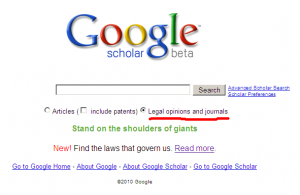Just got a note from the docracy folks. They’ve developed a new, US oriented, open source mobile privacy policy.
I’m quite intrigued by the whole notion of open source legal documents. As some readers of this blog may know, I am very much a fan of open source technology. That being said, I do wonder whether the application of open source models to legal documents will yield the same benefits as their application to code.
I suppose it should, but must admit I do have some doubts. For example, I don’t think that open source legal agreements will necessarily result in widespread adoption or create standards the way open source software does, for a variety of reasons – e.g. differences in each jurisdiction’s laws, variations in business models, or variations in risk tolerance for users.
Moreover, I’m not necessarily sure open source legal agreements that are freely available will supplant professional legal services, the way, for example, that Linux has (or at least has the possibility) of supplanting operating systems for which license fees are paid and no source is made available – like Windows.
Why? Because legal services are already provided in a manner similar to one open source business model – that of value added services. While I certainly wouldn’t mind trying to exploit my drafting work by licensing forms of agreements at $X dollars a pop, that’s not typically how legal services work. When someone asks me to help them create a software license agreement, I’ll ask them various questions regarding their product, how they plan to license and distribute it, how they plan to charge for it, and so on, then take one or more existing precedents and start tailoring to their needs, charging by the hour to do that and perhaps to negotiate the terms from time to time. I don’t charge a license or usage fee for the use of the precedents, but rather only for the “value-add” services. It might be nice too, but if your competitors don’t (and I think most don’t) then it’s tough for you do so. Which is perhaps why legal services typically don’t scale quite as well as other industries.
Sorry, I digress. Anyway, my point was that this service model is quite similar to one approach to one open source business model – license the core product under an open source license, and sell value-add services, such as support, custom development, implementation services and the like – stuff that requires expertise for those that need it.
Just to be clear, I’m not suggesting that the concept of open source legal documents is bad (because it’s not), but rather that I can’t see it having the same impact on the legal services industry as open source code has had on the IT industry. But who knows.

